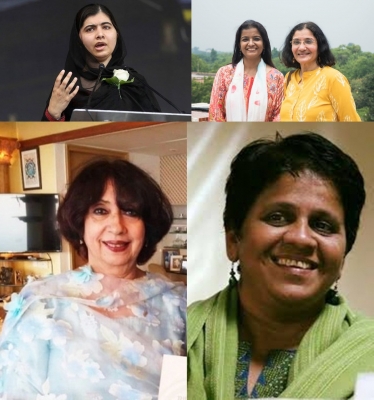By Quaid Najmi
Mumbai/Pune– Expressing ‘solidarity’ with the besieged Afghanis, especially the womenfolk, as militant Talibans seized control of their country, irate Indian feminists questioned for how long women must bear the brunt of political upheavals anywhere in the world.
As stories of the horrors allegedly meted out on the distressed Afghan women trickled out, Indian feminists expressed serious concerns over their safety, security, dignity and human rights, and point out that the Taliban should realize they also have ‘Maa-Behen’ (Mothers-Sisters) and must equally respect all women of their country.
‘There are fears of impending threats of violent pushback from regressive forces, particularly for women and human rights defendants… But the US and Afghan governments have abandoned the people of Afghanistan to chaos, violence and uncertainties,” said Noorjehan S. Niaz and Zakia Soman, Co-Founders, Bharatiya Muslim Mahila Andolan (BMMA).
Director-General of Wisdom Foundation Prof Zeenat Shaukat Ali termed the Taliban takeover as “horrific and frightful” for Afghan women as patriarchal, misogynistic and barbaric mindsets “always make women soft-targets” and push them back to Middle Ages, in the name of Islam and Shariat.
“The Afghan women were progressing well in all fields… They even had substantial representation in the National Assembly (Parliament). The same Islam which guarantees gender justice, equality and right, took them forward. But the Taliban, as well-documented has robbed them of these achievements,” Prof Zeenat said.
While Islam accords a ‘high status’ to women, she apprehends Talibans will do “exactly the opposite”, as we have witnessed earlier brutality against women and children of Afghanistan seeking education, she said.
Hasina Khan of Bebaak Collective (Voice of the Fearless) terms the Taliban control of Aghanistan as “a threat to individual and artistic expression”, and a massive drawback for progressive feminist movement there.
Warning that “the lives of many Afghan women are at direct risk from the religion fanatics,” Soman pointed at past attacks on girls’ schools, women teachers, forced marriages, sexual violence, public flogging and other atrocities on women in the name of upholding Islam.
Activists recall the most high-profile incident – a Pakistan Taliban outfit’s murderous attack on the teenaged girl-crusader, Malala Yousafzai, then 15, in Oct 2012 – which sparked universal outrage.
Now, a global celeb, Malala, 24, not only survived the Taliban bullets, but was conferred the Nobel Peace Prize-2014, and ended her long but determined quest for education, by graduating from Oxford University in 2020.
Prof Zeenat and Soman want the Taliban leadership to publicly announce “a guarantee of safety, security and well-being of all Afghan women, female and rights activists” who have retreated underground after death threats.
Apparently basking in the changed scenario after the ‘shock and awe’ take-over, the Talibans have extended a conditional olive branch to Afghan women, asking them to join the government, etc, but remains to be seen how many takers there are…
Pointing out how all South Asian women are subjected to injustice and inequality in their respective societies, Niaz rued that all of them bear the burden of patriarchal systems, but “are concerned by the looming fate of the Afghan sisters”, given the past dubious records of the Talibans.
Prof Zeenat reminded the Talibans of Prophet Mohammed who said: “It’s the religious duty of every man and women to seek knowledge,” and said the very first revelation in Holy Quran is acquiring ‘ilm’ (knowledge), followed up with 805 verses dealing with ‘ilm’ and its derivatives.
Soman and Khan worry that the new Taliban regime may enforce religious fundamentalism in Afghanistan which could be ‘selectively’ used by the West and other countries “to target Muslims and further Islamophobia”, besides the risks of increased terror activities.
Lauding India for its help in giving priority visas to Afghans, Niaz and Soman urged that as the world’s largest democracy, “we have a moral obligation to stand by and shelter the persecuted people from neighbouring countries during such grave humanitarian crises”.
Prof Zeenat urged the world community, the UN, the UN Women, human and women’s rights commissions, and other such influential global bodies to prioritize the cause of the beleaguered Afghan women – “before it’s too late…”. (IANS)
















